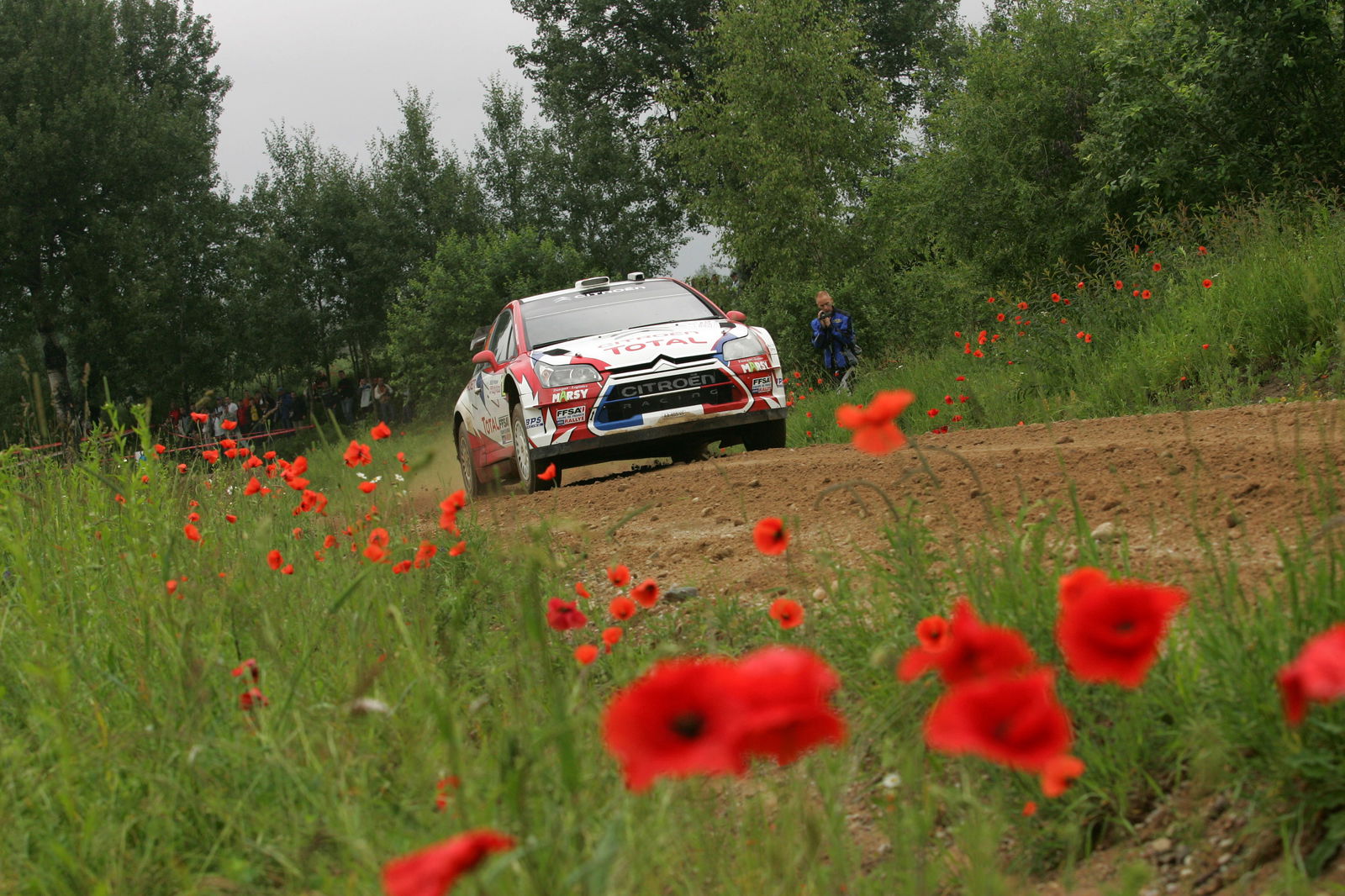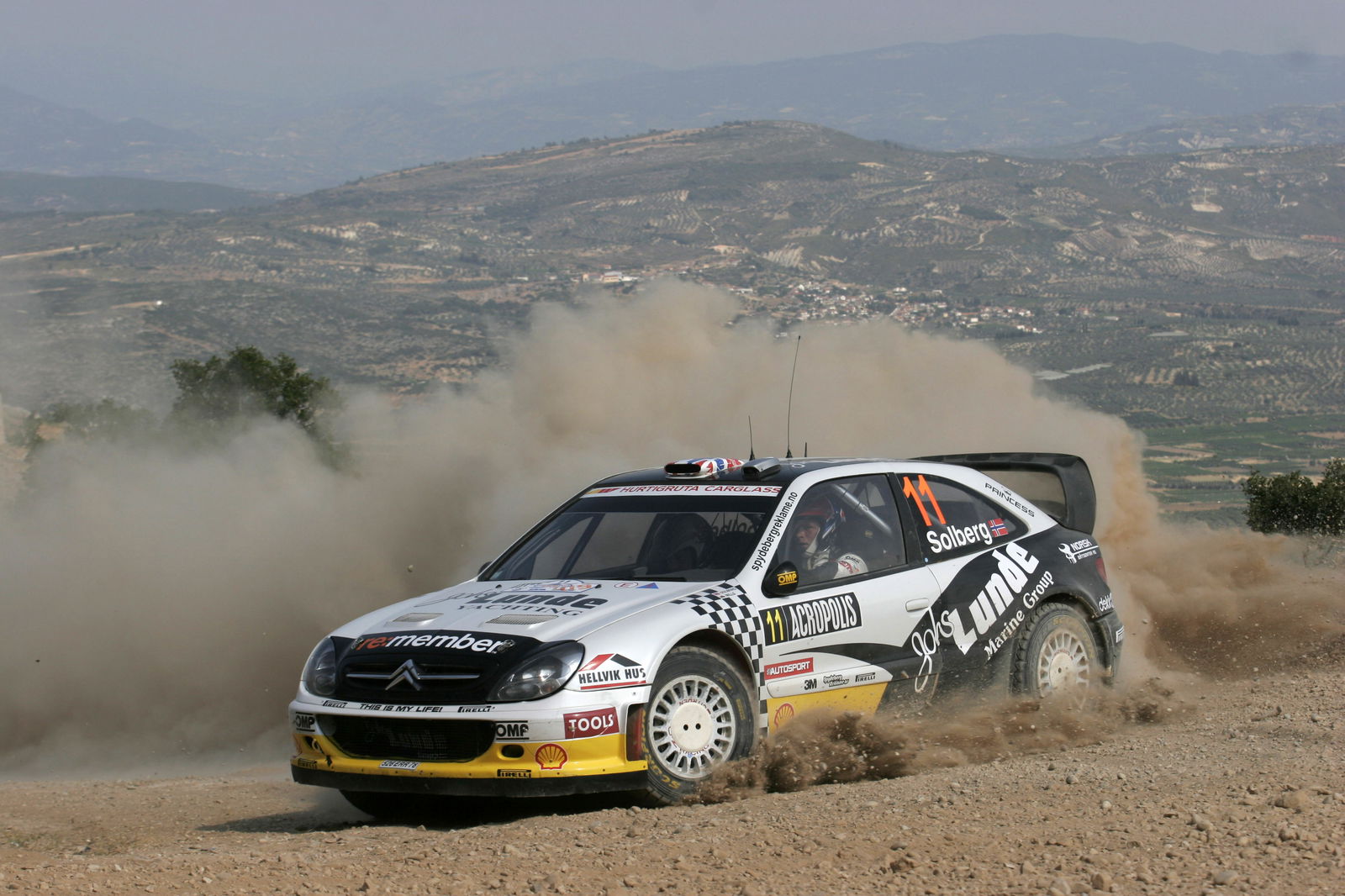Q&A: Simon Long, CEO of ISC
Simon Long, CEO of ISC, the World Rally Championship's commercial and media rights holder, discusses the main decisions announced by the FIA following this week's World Motor Sport Council meeting - including the 2010 calendar, as well as the amendments to the WRC's 2010 Sporting Regulations...
Q:
Simon, what is the rationale behind a 13 event WRC Calendar for 2010?

Simon Long, CEO of ISC, the World Rally Championship's commercial and media rights holder, discusses the main decisions announced by the FIA following this week's World Motor Sport Council meeting - including the 2010 calendar, as well as the amendments to the WRC's 2010 Sporting Regulations...
Q:
Simon, what is the rationale behind a 13 event WRC Calendar for 2010?
Simon Long:
The 2010 calendar is a combination of nine events which had previously been confirmed by the FIA plus four other events, Finland, Spain, GB and Portugal, thereby extending the calendar from 12 to 13 events. The good news is that there are no losers from the previously published calendar which has now been further reinforced with four quality events, proposed by ISC.
Q:
How will WRC calendars be proposed in the future?
SL:
In drawing up our future calendar recommendations, the overriding focus will be on quality as we look to combine the world's best drivers and cars with the best events. That means quality not only in terms of a well run event but also in the way events are marketed and promoted in the interests of spectators, viewers, the media, car manufacturers and commercial partners. As Championship Promoter, ISC will be working with all of the sport's stakeholders to raise the bar for how WRC is staged and showcased to an increasingly global community of fans. ISC will be submitting a proposal for the 2011 WRC calendar for the FIA's approval before the end of 2009.
Q:
Will ISC's agreements with Events only be on an annual basis?
SL:
This will not be a one-size-fits-all approach. We recognise the need for everyone involved in building a healthy and sustainable WRC to have some forward visibility. Thus, we will be entering into multi-year Events agreements with a number of core events in order to give stability and allow appropriate planning with key parties such as sponsors, broadcasters and local government to everyone's advantage.
Q:
What are the promotional benefits of introducing the 1600cc turbo engine in 2011?
SL:
This brings WRC in line with the way the automotive industry and public opinion is moving towards more energy efficient engines. At the same time, this will further support our efforts to attract new manufacturers and car brands into our sport with the prospect of more cost effective and relevant WRC car regulations.
Q:
What are the advantages of giving event Organisers more flexibility over the design of their events?
SL:
The beauty of going to so many distinctive and spectacular locations around the world is the unique character which each event can bring to the Championship and how we promote it. We need to make more of a virtue of the sheer variety of experience and geographical reach which WRC can offer. By allowing Organisers more flexibility over the make-up of their event we anticipate being able to connect with a wider landscape of communities, places and fans. The prospect of mixed surfaces will only add to the unpredictability and challenge which characterises the sport of rallying.
Q:
How will the introduction in 2010 of a "WRC Cup" for Super 2000 cars help?
SL:
This is great news. With the WRC regulations set to shift to a Super 2000 car in 2011 this is a good way of attracting manufacturers, teams and privateers into WRC at an affordable and competitive level. This also offers the chance to sample WRC ahead of potentially taking the step up to the highest level of the sport. We will be undertaking a number of media and marketing initiatives to showcase the series globally and integrate it within the overall promotion of WRC.
Q:
What will be the benefit of replacing "Super Rally" with bonus points for each day?
SL:
With our Championship Promoter's hat on, I think it's fair to say that the Super Rally system can be quite confusing to explain to fans and viewers. The provision of daily bonus points should help further incentivise drivers to go full out throughout the duration of the rally whilst rewarding those drivers who keep their cars on the road from start to finish. This will be good for generating increased media and public interest in the result of each day of racing as well as in the overall classification, a bit like in the Tour de France.
Q:
What's will a global Drivers' World Ranking add to the promotion of WRC?
SL:
This is a great initiative by the FIA which will allow followers of WRC and the sport of rallying to compare and contrast the fortunes of their favourite drivers throughout the year. There is little doubt that the introduction of ranking systems in other major global sports such as golf and tennis had helped raise interest levels locally and internationally. The introduction of a WRC ranking system is bound to help keep the sport, its heroes and rivalries firmly in the eye of the public and media.
Q:
How about the prospect of Remote Service Zones?
SL:
One of the unique aspects of WRC is the fact that it does not take place in a concrete stadium but can roam over huge, diverse areas of the country. A Remote Service Zone, provided that it is well staged and promoted, offers the additional dimension of stretching the heartbeat of a rally to another location away from the central Service Park, thereby further spreading the carnival atmosphere and allowing an additional focal point for fans, the media and sponsors to interact with the sport's stars and personalities. This will work for some events but not necessarily for all depending on the logistics and itinerary of each event and the needs of the stakeholders.
Q:
There are a number of rule changes regarding the introduction of more media opportunities, finish and podium ceremonies and PR opportunities involving the drivers, teams and fans. How will these help your role as the Championship Promoter?
SL:
I think the FIA is to be applauded for the way it has looked at ways of changing the sporting regulations in order to help improve the WRC "show". WRC is all about accessibility and the changes outlined in the FIA's announcement are likely to enable the public and media to get closer than ever before to the local and global heroes of the sport. Adapting to the needs of the broadcasters and press, whilst increasing the entertainment and spectacle of our sport, are bound to increase the profile and marketability of WRC.
Q:
What will be the impact of allowing cars that are certified by ASN's, and which are based on those eligible to enter the WRC, to be permitted in a National Classification?
SL:
As the Championship Promoter we see our role as being as much about showcasing the top of the pyramid of rallying with WRC, as we do connecting the grassroots of the sport to a ladder of opportunity. This is a welcome change which will help encourage more competitors, especially amateurs, to sample the unrivalled experience of participating in WRC events.







